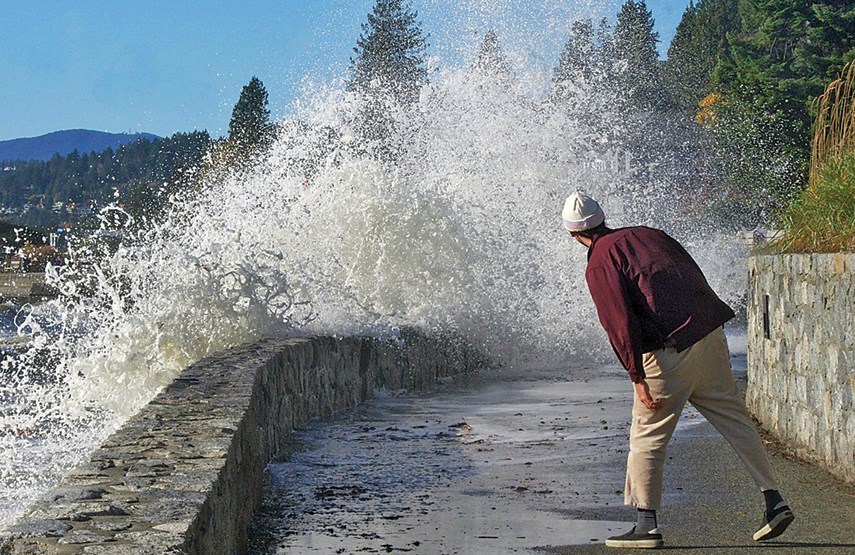The federal government has released its National Adaptation Strategy, a plan to combat flooding, wildfires and coastal erosion occurring as a result of climate change.
At The Polygon Gallery in North Vancouver on Thursday morning, Minister of Natural Resources Jonathan Wilkinson laid out the strategy, the first of its kind, entitled "Building Resilient Communities and the Strong Economy."
He said the plan sets goals in five specific areas that are "key to building climate resilience," including improving health and well-being, building and maintaining resilient infrastructure, protecting and restoring nature and biodiversity, supporting strong economy and workers, and reducing the impacts of climate related disasters.
"The strategy establishes, for the first time, a truly national direction for preparing for climate change events across this country," he said.
"This is about taking preventative action to ensure that we can manage these kinds of issues that we know are going to arise, going forward in a manner that is thoughtful and strategic."
Alongside the National Adaptation Strategy will be the government's own Adaptation Action Plan, which will lay out the government's role in preparing the public for climate hazards, and outlines the investments, programs and initiatives that are making the country more resilient to climate impacts.
Wilkinson, who is the Liberal member of Parliament for North Vancouver, said the government will be contributing an extra $1.6 billion, in addition to the $4.9 billion in existing federal adaptation spending, under the new action plan.
New funding will be funnelled into three programs that focus on floods, fires, and Northern and Coastal communities adaptation, he said.
Of that, $135 million will go towards boosting the Flood Hazard Identification and Mapping Program, by completing nationwide flood mapping and developing web services to provide information on flood risks, while $285 million will go towards the launch of a Wildfire Resilient Futures Initiative, designed to increase resilience and awareness via research and pilot projects on fire risk reduction measures.
An additional $40 million will be poured into the launch of a Climate Resilient Coastal and Northern Communities program, which will work with coastal partners, Indigenous rights-holders, and stakeholders to learn of and protect against the area's sea level rise and coastal erosion.
"This science will be invaluable to decision making as we move forward to support adaptation and resilience planning," he said.
"The choices we make and adaptations actions that we take today have significant implications for the future of our communities, our livelihoods, the environment and our economy."
"Through the national adaptation strategy, we are going beyond cutting carbon pollution. And we are preparing our communities to have greater resilience against the impacts of climate change that we know will be felt in the years to come."
District of North Vancouver Mayor Mike Little said municipalities have a "core responsibility" to have disaster response and preparedness.
He said the costs of combating and dealing with the effects of climate change are going up "year after year after year" and so it is "critically important" resources are in place to properly address and mitigate those impacts in the community.
"Whether you're in a community here on the West Coast, you're in the North, or you're in the Maritimes, you're going to be impacted by climate change. And it's critically important for all of us to be able to have the resources in place to properly mitigate the impacts on our community," he said.
A draft subject for the time being, the strategy remains open to the provinces, territories and National Indigenous Organizations for comment on the goals and targets, for the next 90 days.
Mina Kerr-Lazenby is the North Shore News' Indigenous and civic affairs reporter. This reporting beat is made possible by the Local Journalism Initiative.


